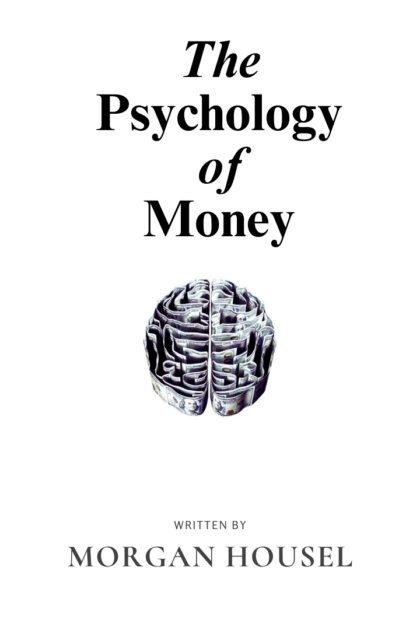Book Review: “The Psychology of Money” by Morgan Housel
When it comes to personal finance and investing, numbers and data are often the focus. However, in his book “The Psychology of Money,” Morgan Housel explores the often overlooked aspect of money: the psychology behind our financial decisions. Housel provides valuable insights into how our emotions, biases, and behaviors shape our relationship with money, ultimately offering practical advice for achieving financial success.

The Power of Narrative
Housel begins by highlighting the importance of understanding the power of narrative when it comes to money. He explains how stories and anecdotes shape our perception of wealth and success, often leading us to make irrational decisions. By recognizing this, Housel encourages readers to question the stories that drive their financial choices and to develop a more objective mindset.
One of the key takeaways from the book is that financial success is not solely determined by intelligence or knowledge of the markets. Instead, it is our ability to manage our emotions and make rational decisions that plays a significant role. Housel emphasizes the importance of self-awareness and understanding our own biases, as this can help us avoid common pitfalls and make better financial choices.
The Role of Time and Patience
Housel also delves into the concept of time and its impact on financial success. He stresses the importance of thinking in the long run and the potential of compounding. Through various examples and stories, he illustrates how patience and discipline can lead to significant wealth accumulation over time.
Furthermore, Housel highlights the importance of understanding the difference between getting rich and staying rich. Many individuals focus solely on the former, often taking unnecessary risks in pursuit of quick gains. However, Housel argues that true financial success lies in the ability to sustain wealth over the long term, which requires a different mindset and approach.
The Value of Adaptability
In “The Psychology of Money,” Housel also emphasizes the value of adaptability. He discusses how the world of finance is constantly changing, and it is crucial for individuals to be open to new ideas and willing to adapt their strategies. Housel provides examples of how individuals who were once successful became complacent and failed to adapt to changing circumstances, leading to their downfall.
By highlighting the importance of adaptability, Housel encourages readers to continuously learn, grow, and evolve in their financial journey. He emphasizes the need to stay informed, seek out new opportunities, and be willing to adjust one’s approach when necessary.
Conclusion
“The Psychology of Money” by Morgan Housel is a thought-provoking and insightful book that challenges conventional wisdom about personal finance. By focusing on the psychological aspects of money, Housel provides a fresh perspective on how we can make better financial decisions and achieve long-term success.
Through engaging stories and practical advice, Housel encourages readers to develop a deeper understanding of their own behaviors and biases when it comes to money. By doing so, we can overcome common pitfalls, make more rational choices, and ultimately improve our financial well-being.
Whether you are a seasoned investor or just starting your financial journey, “The Psychology of Money” offers valuable lessons that will help you navigate the complex world of finance with confidence and clarity.


